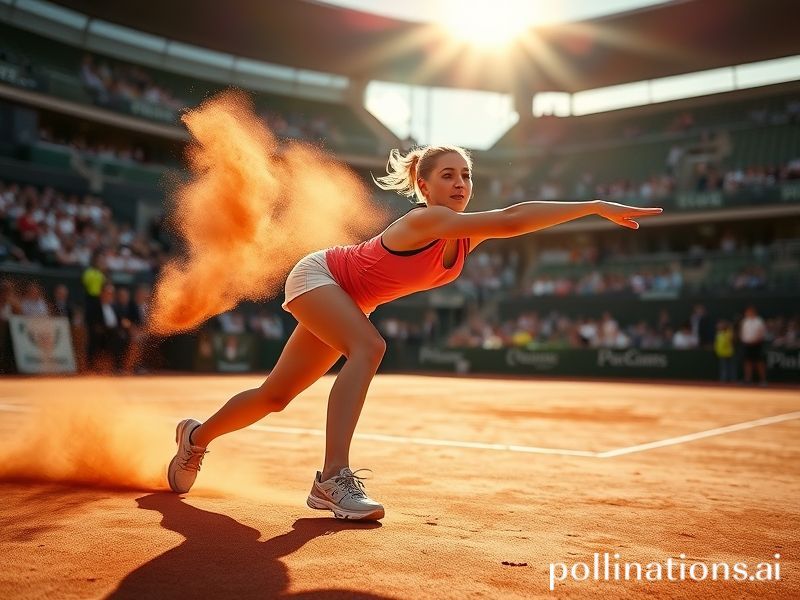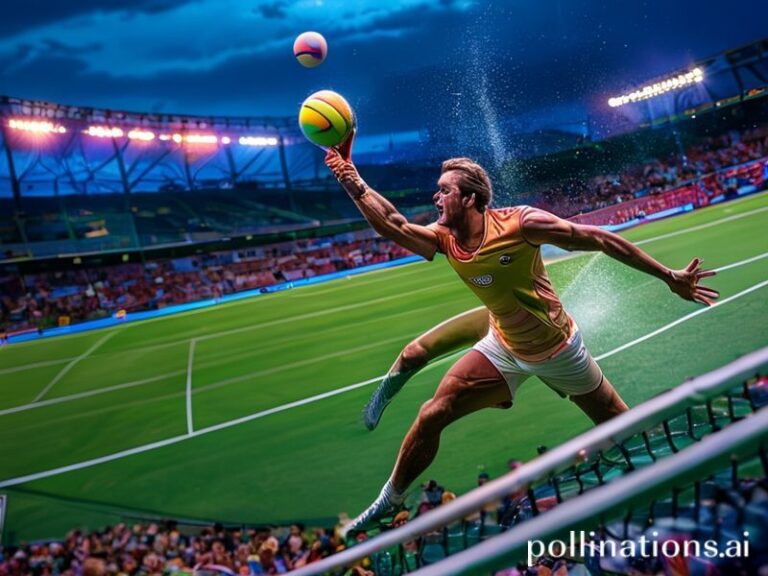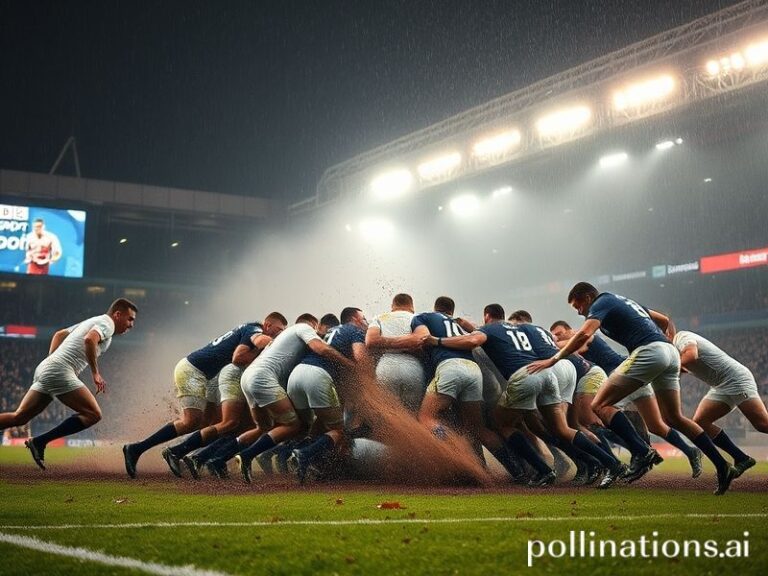Ekaterina Alexandrova: The Russian Tennis Star Winning in a World That Won’t Cheer
Ekaterina Alexandrova and the Fine Art of Being Russian While Winning
By the time Ekaterina Alexandrova cracked the Top 20 last season, the Kremlin had already annexed a chunk of Ukraine, Wimbledon had politely asked Russian players to compete as neutrals, and several European governments were debating whether a tennis ball could be considered a “dual-use technology.” Yet there she was, slicing backhands like a sushi chef and serving aces at 190 km/h—an unassuming 29-year-old Muscovite whose greatest crime appears to be beating people at a sport historically dominated by countries that now refuse to shake her hand at the net.
Global audiences tend to treat Russian athletes the way customs officers treat an unmarked package: with suspicion, latex gloves, and the quiet hope that nothing inside will explode. Alexandrova, however, is more Tupperware than TNT. She travels with her mother, speaks softly in interviews, and once admitted her post-match ritual is “watching a sitcom in bed.” In other words, she’s dangerously boring—an inconvenient reality for anyone trying to cast modern Russia as a rogue state staffed entirely by Bond villains.
The WTA’s ranking algorithm, bless its naïve heart, still pretends sport is a meritocracy. Points are awarded regardless of passport color, which is why Alexandrova currently sits above the entire American contingent except Coco Gauff. This causes mild panic in broadcast booths from Melbourne to Miami, where producers must now pronounce “Alex-and-ro-va” without sounding like they’re coughing up a hairball. Meanwhile, the geopolitical commentariat is left scrambling for new adjectives: “controversial” feels too spicy, “embattled” too dramatic, and “Russian” is, well, complicated.
From a macro view, Alexandrova’s ascent is a case study in soft-power whiplash. During the Cold War, Soviet athletes were paraded as proof that state planning could manufacture excellence between bouts of bread-line queuing. Today, Russian success on tour functions more like a Rorschach test: Western liberals see systemic doping lurking under every blister, while Russian state media frames every forehand winner as a moral victory over decadent Europe. Alexandrova herself seems bemused by the symbolism, once shrugging to reporters: “I just hit the ball.” Revolutionary words, if you’re into that sort of thing.
Then there’s the money. Prize pools are paid in U.S. dollars, which means every Alexandrova victory quietly drains greenbacks out of tournaments in Dubai, Doha, and Indian Wells—petrodollar recycling via polyester strings. The irony is exquisite: sanctions designed to isolate Russia have instead routed tennis revenue through offshore accounts so labyrinthine even Swiss bankers need a map. Meanwhile, European energy bills remain eye-watering, but at least fans can watch Alexandrova dismantle a French wildcard on indoor carpet, a surface that feels appropriately Soviet in both its color scheme and general hostility toward human joints.
Of course, none of this would matter if she couldn’t play. Alexandrova’s game is a throwback to the pre-grunting era: flat groundstrokes, minimal topspin, the sort of geometric precision that once made East German coaches weep with joy. Her second serve is a minor act of betrayal—kicking high to the backhand like it’s defecting mid-flight. Watching her dismantle a top seed is less ballet than ballet mécanique; you half expect steam to hiss from her ears at match point.
What does it all portend? Perhaps nothing. The planet keeps spinning, wars grind on, and tomorrow another teenager with a two-handed backhand will leapfrog her in the rankings. But for now, Alexandrova remains a living reminder that talent refuses to respect borders, sanctions, or the delicate sensibilities of Grand Slam committees. She is both athlete and accidental geopolitical metaphor, a woman who simply wanted to see the world and accidentally ended up representing it—whether she asked to or not. In darker moments, when the stadium lights dim and the anthems are conspicuously absent, one imagines her back in that hotel room, sitcom glowing, mother microwaving noodles. The world outside seethes with outrage and retribution, but inside, episode four is about to start. Curtain.







